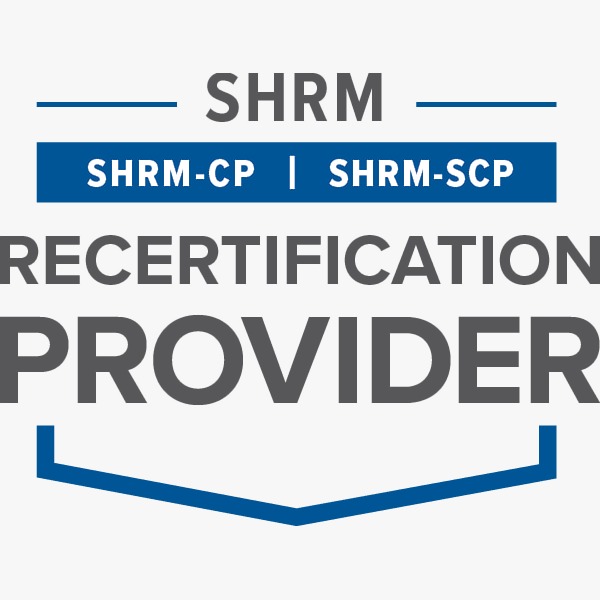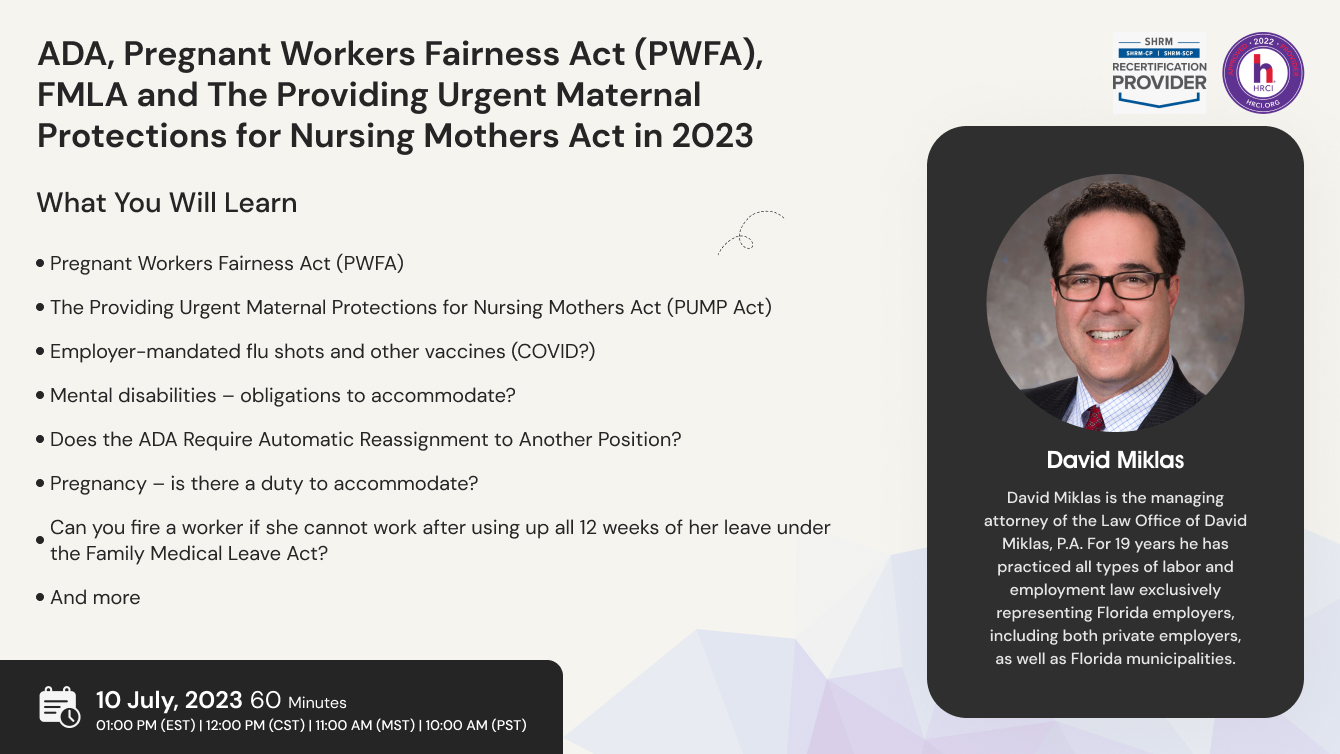Duty to Reasonably Accommodate: The ADA, Pregnancy, and FMLA in 2023
When an employee asks for an accommodation, sometimes the business may need to take steps to explore whether it is feasible to provide such an accommodation. In this session, designed for business owners and Human Resources professionals, you will learn how the duty to “reasonably accommodate” focuses on disabilities, FMLA leave and even pregnancy. The law recently changed regarding pregnancy, and employers obligations are significantly more burdensome now.
The Pregnant Workers Fairness Act (PWFA) takes effect from 27th June 2023, requiring covered employers to offer reasonable accommodations to pregnant workers. The PUMP Act asks employees to inform their employer of non-compliance and provide a 10-day window for the employer to address the issues, making management training now more important than ever. It is crucial for employers and managers to be trained as the PUMP Act Enforcement and PWFA effective dates approach.
What's New?
-What is required under the new Pregnant Workers Fairness Act (PWFA)?
-How to comply with the Providing Urgent Maternal Protections for Nursing Mothers Act (PUMP Act)?
-Pregnancy – is there a duty to accommodate?
-Can you fire a worker if she cannot work after using up all 12 weeks of her leave under the Family Medical Leave Act?
What You will Learn
-Pregnant Workers Fairness Act (PWFA)
-What is Providing Urgent Maternal Protections for Nursing Mothers Act (PUMP Act)?
-Employer-mandated flu shots and other vaccines (COVID?)
-Mental disabilities – obligations to accommodate?
-Does the ADA Require Automatic Reassignment to Another Position?
-How is a duty to accommodate a pregnant woman different from a disability?
Join Us to
-Learn how to handle employee requests for accommodations due to disabilities.
-Understand the risks associated with employees with a disability asking for accommodations, and how to best handle them.
Why You Should Attend
To keep up with cutting edge issues, and also brush up on areas that are risky for many employers and organizations. It is difficult for business owners and even HR professionals to stay on top of changing laws, and this year we have significant changes in the obligations that employers have regarding pregnant women.
Who will Benefit
-Business owners
-Human Resources professionals
-Employees
-Anyone in charge of rejecting an employee’s request for an accommodation

David Miklas
David Miklas owns a Labor & Employment law firm and for 24 years, he has practiced all types of labor and employment law exclusively representing Florida employers. He speaks on Clatid Compliance to assist the Human Resources professionals become and stay compliant. He has written hundreds of employment law articles and is the co-author for the premier legal textbook used by lawyers for Florida employment law.
Mr. Miklas is a frequent employment law presenter and a nationally recognized speaker. He is also an invited guest lecturer addressing Employment Law and Human Resource issues with over thirty universities, including Harvard. He graduated from the University of Florida College of Law.

SHRM-
Stand Eagle is recognized by SHRM to offer Professional Development Credits (PDCs) for the SHRM-CPSM or SHRM-SCPSM. This program is valid for 1.0 PDCs for the SHRM-CPSM or SHRM-SCPSM. For more information about certification or recertification, please visit - portal.shrm.org.

HRCI -
This webinar has been approved for 1.0 HR (General) re-certification credit hours toward California, GPHR, HRBP, HRMP, PHR, and SPHR recertification through the HR Certification Institute.
The use of this seal is not an endorsement by the HR Certification Institute of the quality of the activity. It means that this activity has met the HR Certification Institute’s criteria to be pre-approved for re-certification credit.

ACCREDITATIONS


